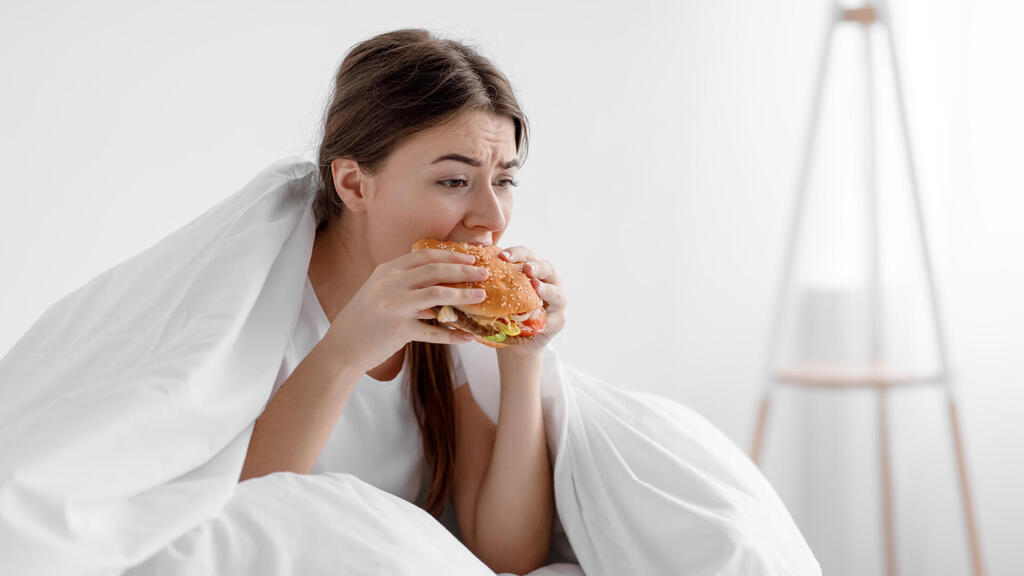1
In the complex relationship we have with food and our bodies, emotional eating stands out as a significant challenge for many. For some, it might manifest as reaching for a tub of ice cream after a breakup, for others, as mindlessly munching on snacks to ease the stress of a tough day. Although these behaviors can offer immediate comfort, the long-term effects often leave us more depleted and anxious, leading to a cycle that’s hard to break.
This blog post is an empathetic guide for those who have recognized emotional eating as a hurdle on their path to health and wellness. We will explore the roots of emotional eating, how it impacts our lives, and most importantly, strategies to foster resilience and combat it with healthier coping mechanisms.
At its core, emotional eating is the consumption of food as a response to feelings rather than hunger. This may be triggered by a range of emotions including stress, sadness, loneliness, or even positive feelings like celebration. The causes can be multifaceted, often a combination of biological, psychological, and social elements.
The effects of emotional eating can extend beyond the waistline. Continuous binge-eating can lead to weight gain, nutritional deficiencies, and an unhealthy relationship with food. Mentally, it’s often a coping strategy for deeper emotional issues, which if left unaddressed, can lead to a host of mental health challenges such as depression and anxiety.
Building Resilience
Mindful Eating Practices
Mindfulness in eating involves being present during meals, paying attention to the sensory experience of eating, and acknowledging our body’s signals of hunger and satiety. This approach can help us differentiate between true hunger and the urge to eat due to emotions.
Stress Management Techniques
Given that stress is a major trigger for emotional eating, learning effective stress management techniques is crucial. Regular exercise, meditation, and hobbies can be powerful tools in reducing stress levels and curbing the urge to eat for comfort.
Seeking Professional Support
Sometimes, the roots of emotional eating run deep and require the guidance of a professional to untangle. Nutritionists, therapists, or support groups can offer tailored advice to address emotional eating within a larger health framework.

Healthy Coping Strategies
Finding Alternative Activities
One of the most effective ways to combat emotional eating is to find alternative activities to soothe emotions. This could include reading, going for a walk, creative pursuits, or connecting with loved ones.
Developing a Balanced Relationship with Food
Seeing food as fuel as well as an occasional source of pleasure can help in building a healthier relationship with eating. By understanding and controlling portion sizes, and choosing nourishing foods, we can reframe our approach to eating.
Cultivating Self-Awareness and Self-Care
Building self-awareness around emotions and the habits that follow can be liberating. Through gentle self-care practices, such as adequate sleep, regular exercise, and engaging in activities that bring joy, we strengthen our resistance to the pull of emotional eating.
Recognizing, understanding, and addressing emotional eating is indeed a profound journey towards achieving holistic health. While this guide offers a starting point, the path to wellness is highly personal and can sometimes require more specialized support. For those seeking further guidance, Dr. Frank’s Weight Loss Clinic offers a comprehensive approach to managing emotional eating.
At Dr. Frank’s Weight Loss Clinic, the focus extends beyond mere dietary advice. The clinic specializes in understanding the emotional triggers that lead to unhealthy eating patterns, offering a blend of clinical expertise with compassionate care. Through personalized nutrition plans, psychological support, and a community of encouragement, the clinic empowers individuals to take control of their eating habits and work towards a more balanced life.
For readers of this blog who recognize themselves in the struggles shared here, Dr. Frank’s Weight Loss Clinic can be a valuable resource. The clinic’s approach aligns with the strategies discussed, such as mindful eating, stress management, and cultivating self-awareness, but takes these concepts further with professional guidance tailored to your unique situation.
If you’re ready to break free from the cycle of emotional eating and pursue a healthier, more balanced relationship with food, consider reaching out to Dr. Frank’s Weight Loss Clinic. It could be the supportive partnership you need to implement the strategies discussed in this blog into real, enduring change in your life. Contact them today to start your journey towards lasting wellness and emotional resilience.
Remember, every step you take is a step towards a healthier you. With the right support and a commitment to change, transforming your relationship with food and managing emotional eating is within your reach.

